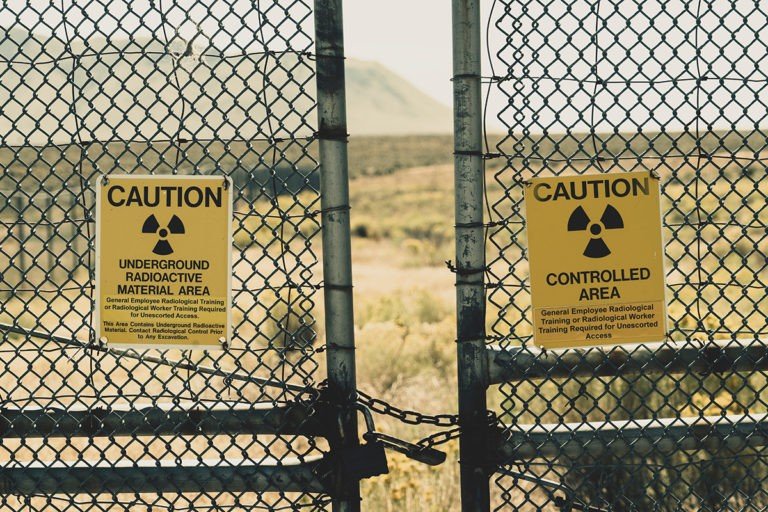1 Samuel 22 (Listen)
David at the Cave of Adullam
22:1 David departed from there and escaped to the cave of Adullam. And when his brothers and all his father’s house heard it, they went down there to him. 2 And everyone who was in distress, and everyone who was in debt, and everyone who was bitter in soul,1 gathered to him. And he became commander over them. And there were with him about four hundred men.
3 And David went from there to Mizpeh of Moab. And he said to the king of Moab, “Please let my father and my mother stay2 with you, till I know what God will do for me.” 4 And he left them with the king of Moab, and they stayed with him all the time that David was in the stronghold. 5 Then the prophet Gad said to David, “Do not remain in the stronghold; depart, and go into the land of Judah.” So David departed and went into the forest of Hereth.
Saul Kills the Priests at Nob
6 Now Saul heard that David was discovered, and the men who were with him. Saul was sitting at Gibeah under the tamarisk tree on the height with his spear in his hand, and all his servants were standing about him. 7 And Saul said to his servants who stood about him, “Hear now, people of Benjamin; will the son of Jesse give every one of you fields and vineyards, will he make you all commanders of thousands and commanders of hundreds, 8 that all of you have conspired against me? No one discloses to me when my son makes a covenant with the son of Jesse. None of you is sorry for me or discloses to me that my son has stirred up my servant against me, to lie in wait, as at this day.” 9 Then answered Doeg the Edomite, who stood by the servants of Saul, “I saw the son of Jesse coming to Nob, to Ahimelech the son of Ahitub, 10 and he inquired of the LORD for him and gave him provisions and gave him the sword of Goliath the Philistine.”
11 Then the king sent to summon Ahimelech the priest, the son of Ahitub, and all his father’s house, the priests who were at Nob, and all of them came to the king. 12 And Saul said, “Hear now, son of Ahitub.” And he answered, “Here I am, my lord.” 13 And Saul said to him, “Why have you conspired against me, you and the son of Jesse, in that you have given him bread and a sword and have inquired of God for him, so that he has risen against me, to lie in wait, as at this day?” 14 Then Ahimelech answered the king, “And who among all your servants is so faithful as David, who is the king’s son-in-law, and captain over3 your bodyguard, and honored in your house? 15 Is today the first time that I have inquired of God for him? No! Let not the king impute anything to his servant or to all the house of my father, for your servant has known nothing of all this, much or little.” 16 And the king said, “You shall surely die, Ahimelech, you and all your father’s house.” 17 And the king said to the guard who stood about him, “Turn and kill the priests of the LORD, because their hand also is with David, and they knew that he fled and did not disclose it to me.” But the servants of the king would not put out their hand to strike the priests of the LORD. 18 Then the king said to Doeg, “You turn and strike the priests.” And Doeg the Edomite turned and struck down the priests, and he killed on that day eighty-five persons who wore the linen ephod. 19 And Nob, the city of the priests, he put to the sword; both man and woman, child and infant, ox, donkey and sheep, he put to the sword.
20 But one of the sons of Ahimelech the son of Ahitub, named Abiathar, escaped and fled after David. 21 And Abiathar told David that Saul had killed the priests of the LORD. 22 And David said to Abiathar, “I knew on that day, when Doeg the Edomite was there, that he would surely tell Saul. I have occasioned the death of all the persons of your father’s house. 23 Stay with me; do not be afraid, for he who seeks my life seeks your life. With me you shall be in safekeeping.”
Footnotes
[1] 22:2
[2] 22:3
[3] 22:14
(ESV)
1 Samuel 22 Commentary
In 1 Samuel 22, David fled to the cave of Adullam, where his family and about 400 desperate men joined him (1 Samuel 22:1-2). He then sought refuge for his parents with the king of Moab before moving to the forest of Hereth at the prophet Gad’s instruction (1 Samuel 22:3-5).
Meanwhile, after Saul heard of David’s whereabouts, he accused his servants of conspiring against him, particularly because his son Jonathan had allied with David (1 Samuel 22:6-8). Doeg the Edomite informed Saul that Ahimelech, the priest of Nob, had aided David by giving him provisions and Goliath’s sword (1 Samuel 22:9-10). Saul summoned Ahimelech and his family, accusing them of conspiring with David, but Ahimelech defended himself, stating that David had always been a loyal servant (1 Samuel 22:11-15).
Saul, refusing to listen, ordered the execution of Ahimelech and all the priests of Nob, but his guards would not move a muscle. Instead, Doeg carried out the slaughter, killing 85 priests and destroying Nob, including its people and livestock (1 Samuel 22:16-19). Ahimelech’s son Abiathar escaped and fled to David, reporting the massacre. David admitted he anticipated Doeg’s betrayal and took responsibility for the deaths, offering Abiathar protection (1 Samuel 22:20-23).
David’s Timeline
With all the twists and turns of David’s journey, it can get confusing to understand all that is going on in 1 Samuel 22. In 1 Samuel 21, David was on the run from Saul and had just left Gath after feigning insanity.
David Seeks Refuge in Adullam
- After leaving Gath, David travels about 10 miles east to a cave in Adullam, a location within Judah’s territory.
- His family, fearing Saul’s retaliation, decides to join him there.
A Group of Followers Gathers Around David
- Approximately 400 individuals, including those struggling with hardship, debt, or dissatisfaction with society, come to David.
- Some may have seen him as a leader who could provide protection and a fresh start, while others might have sought revenge against those who wronged them in society.
David Arranges Protection for His Family in Moab
- Seeking safety for his parents, David moves his group to Mizpah, a Moabite city east of the Dead Sea.
- He asks the Moabite king to shelter his parents until he understands his next steps from God.
- The king agrees, possibly due to political motivations or because David’s ancestry includes Moabite lineage. Remember, David had Moabite DNA from his grandmother, Ruth.
- David’s family remains in Moab while he stays in a fortified location, likely within Moabite territory.
The Prophet Gad Directs David to Leave Moab
- The prophet Gad instructs David to leave the stronghold and return to Judah, emphasizing that staying in Moab is not an option.
- This directive aligns with the Torah’s command against forming close alliances with Moabites.
- Understanding the importance of obedience to divine instruction, David immediately relocates to a forested area west of the Dead Sea.
- The forest provides a natural defense, and by relying on God rather than a physical fortress, David places his trust in divine protection.
Saul’s Escalating Madness
The scene opens with Saul furious at the lack of support and loyalty from his royal cabinet. The most concerning for Saul was the fact that no one told him his son Jonathan had made a covenant with David, leading to extreme paranoia. He is so delusional that he believes this whole thing is a Jonathan-led conspiracy and that David is waiting in ambush to kill him! The sole reason why everyone has to be so secretive is because Saul is so crazy, yet, he manages to put the blame on everyone else.
Remember when David went to the priest (Ahimelech) in Nob back in 1 Samuel 21? He didn’t exactly tell Ahimelech the full truth about his journey, and while he was there, Doeg the Edomite overheard his conversation and reported back to King Saul. This enraged Saul, who called for Ahimelech and his entire family to be brought before the king for questioning. I use the word “questioning” lightly as it seems Saul had already made up his mind about what he was going to do.
Ahimelech defended himself, stating that David was a loyal servant of Saul and that his actions were routine priestly duties, not acts of rebellion. Saul, unmoved by Ahimelech’s defense, sentenced the priests to death. His Israelite guards refused to carry out the order, recognizing its injustice. However, Doeg willingly executed 85 priests and went further by slaughtering the entire city of Nob (men, women, children, and livestock).
It is ironic that Saul could not fight Goliath or wipe out all of the Amalekites, but he can confidently wipe out God’s priests and the entire city of Nob. This is what happens to people who have no fear of the Lord. They are driven by their insecurities and foolishness.
“This kind of mass execution, elsewhere termed ḥerem, was authorized in the Torah only for use against non-Yahwistic peoples living in Canaan who would otherwise teach the Israelites to sin against the Lord (cf. Deut 20:17–18). The perpetration of this act against a city of Aaronic priests—those who taught Israelites to avoid sinning against Yahweh—was an unspeakable crime. Saul’s stunning inversion of the revealed will of the Lord in this instance is consistent with the text’s portrayal of Saul as a king “such as all the other nations have” (8:5).”
The New American Commentary
Psalm 52
It is amazing that we have the book of Psalms (many written by David) that we can use to give more insight into the events of David’s life. David wrote Psalm 52 in response to this incident, specifically about Doeg the Edomite’s betrayal and the massacre of the priests of Nob. In this psalm, David condemns Doeg’s wickedness, boasting, and deceit while expressing confidence that God will ultimately bring justice. He contrasts the fate of the wicked with the steadfast love and protection of God for the righteous.
We are able to get a glimpse of how David processed injustice in his life. He always went back to the Lord. David continually poured his heart out to God and reaffirmed his trust in the fact that God was sovereign and would act when the timing was right. This is particularly instructive for those of us who are going through difficult times and do not see God moving as quickly as we would like Him to.
It is also relevant to point out that David took full responsibility for his poor decisions in 1 Samuel 21 (1 Samuel 22:22). This is a defining characteristic that separated him from men like Saul. He was not perfect, but he confessed and owned his sin.







